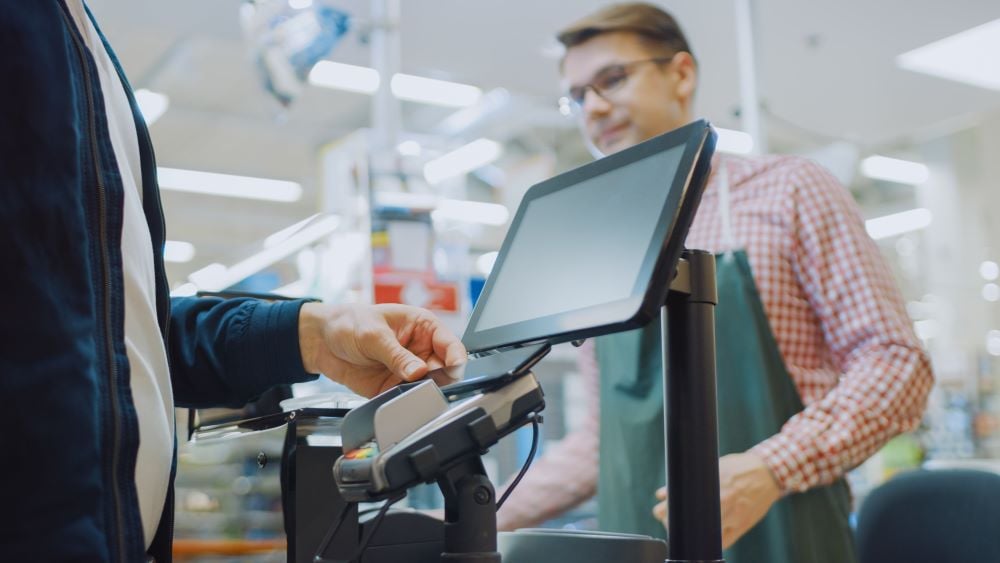The point-of-sale system (POS) has evolved a lot over the past few decades. Originally intended only for processing payments, now they are the brains of every business. In addition to tracking inventory, they monitor employee activity, back up your data to the cloud, and generate reports that help you run your business more efficiently.
To create a seamless shopping experience, mobile technology must be incorporated throughout the entire shopping process. A seamless ePOS experience not only enhances customer satisfaction but also streamlines operations and increases productivity.
This blog post will dive into the top trends businesses should consider to offer their customers this seamless shopping experience regardless of where, when, or how they want to pay.
The importance of a seamless ePOS experience
A seamless ePOS experience plays a pivotal role in shaping a positive point of sale experience for customers. It ensures smooth transactions, reduces waiting times, and enhances overall customer satisfaction. By investing in a seamless ePOS system, businesses can gain several benefits, including improved operational efficiency, increased sales, and strengthened customer loyalty.
Now, let’s delve into the top trends that can help businesses optimise their ePOS operations:

1. Innovative mobile payment options and integrations
Integrating innovative mobile payment options into ePOS systems has become essential in today’s mobile-driven world. By embracing mobile wallets, digital payment platforms, and contactless payment methods, businesses can offer customers convenient and secure payment experiences. Mobile payment integration allows for faster transactions, reduces the need for physical cash handling, and opens doors to new customer demographics.
2. Cloud-based infrastructure
Cloud-based ePOS solutions have revolutionised traditional on-premises systems. These solutions offer numerous advantages, including scalability, flexibility, and accessibility. With cloud-based ePOS systems, businesses can easily manage multiple locations, synchronise data in real time, and streamline inventory management. Additionally, cloud-based systems ensure data security and backup, eliminating the risk of data loss or system failures.


3. An integrated omnichannel approach
By integrating online and offline sales channels, businesses can provide customers with consistent experiences across various touchpoints. Customers can start a transaction online and complete it in-store or vice versa, seamlessly accessing product information, loyalty rewards, and personalised offers. This trend enhances customer engagement and loyalty and encourages repeat business.
4. AI in ePOS systems
Artificial Intelligence (AI) is transforming the ePOS landscape, offering businesses intelligent insights and automation capabilities. AI-powered ePOS systems can analyse customer data, identify purchasing patterns, and provide personalised recommendations. This technology enables businesses to offer targeted promotions, enhance upselling opportunities, and improve inventory management. By leveraging AI, businesses can streamline operations and create tailored experiences for their customers.


5. Contactless and self-service options
The COVID-19 pandemic has accelerated the adoption of contactless and self-service options in ePOS systems. Customers now prefer minimal physical contact during transactions. Businesses can cater to this preference by offering self-checkout kiosks, mobile ordering apps, and touchless payment options. Implementing contactless and self-service solutions not only enhances safety but also expedites the checkout process, reducing waiting times and improving customer satisfaction.
6. Enhanced security measures
With the increasing risk of cyber threats and data breaches, robust security measures are crucial for ePOS systems. Businesses should invest in encryption technologies, tokenisation, and two-factor authentication to safeguard customer data and prevent fraudulent activities. Additionally, adhering to industry standards and compliance regulations ensures data privacy and builds trust among customers.

Optimising your ePOS operations
To remain competitive and meet customers’ evolving expectations, businesses must prioritise a seamless ePOS experience and adopt the trends presented above. Only then can they enhance customer experiences and drive long-term success.
Whether through real-time data insights or fast checkout services, making the buying process seamless for customers has never been easier. Our ePOS system is modern, accessible and efficient to help you connect with your customers on the move, reduce costs and perform better.
Compatible with any hardware such as mobile, tablet, kiosk, self-checkout or fixed register, it is simple to use with an intuitive interface. Real-time data and real-time reporting are accessible wherever you are. Moreover, the ePOS platform integrates with our award-winning payments platform seamlessly.
Try our ePOS solution for yourself today!





